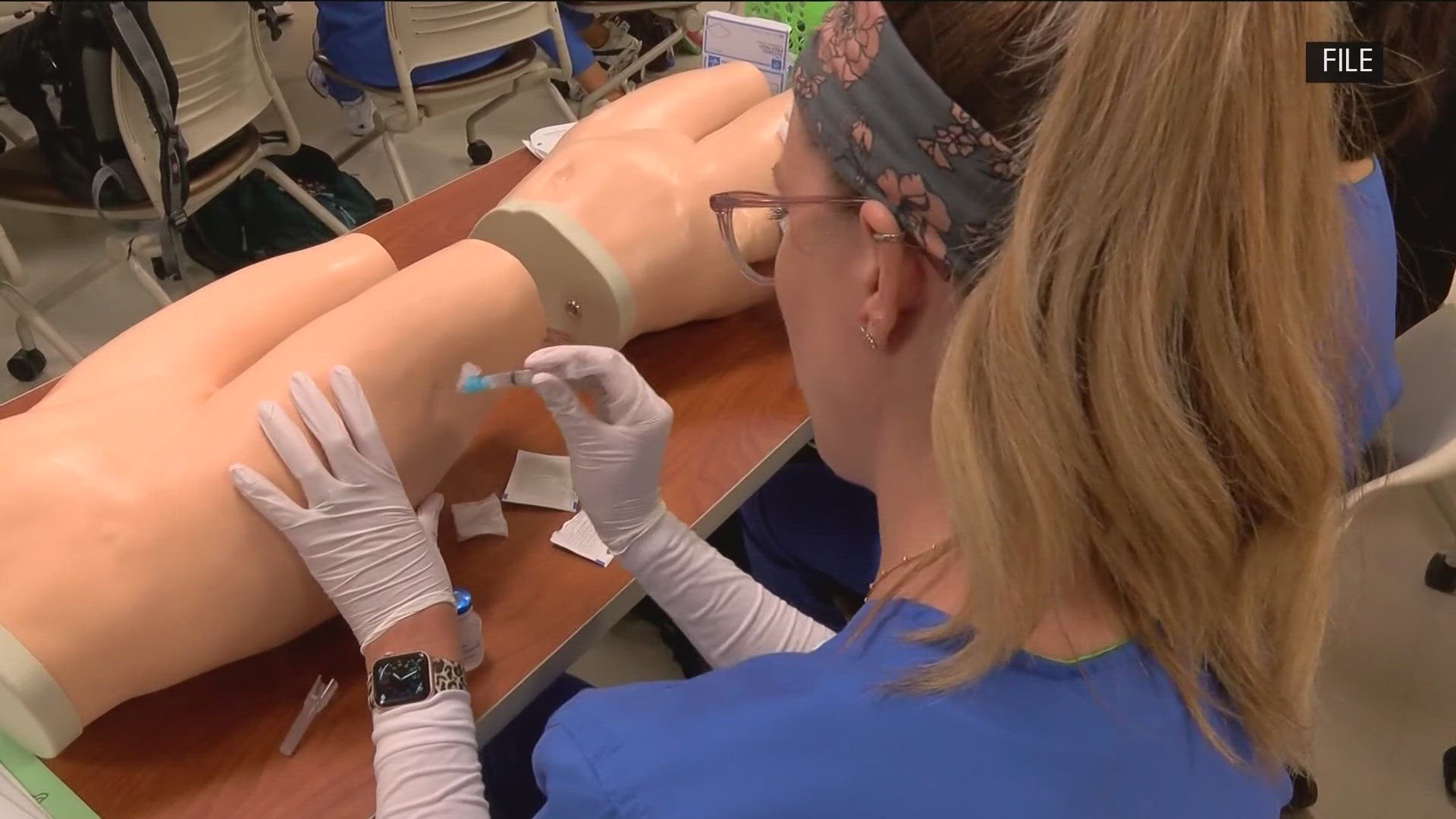OHIO, USA — Nurses and lawmakers gathered Tuesday for the first hearing of a bill that would change minimum staffing standards for nurses in Ohio.
House Bill 285, sponsored by state Reps. Haraz Ghanbari (R-Perrysburg) and Elgin Rogers Jr. (D-Toledo), would have committees of nurses create standard nurse-to-patient ratios.
In the hearing, Ghanbari said the ratios could range from one nurse for every one patient to one nurse for every six patients. Hospitals would have two years to meet the standards. Hospitals identified by the director as being specifically in rural areas would have four years to meet the standards.
The bill would also create a $20 million loan-to-grant program to help encourage nurses to stay in the state. Ghanbari said nurses would receive up to $3,000 per year of schooling, and if they stay in Ohio for work for at least five years, they would not have to repay the loans.
Rogers said there was a need for this legislation due to the amount of nurses leaving the field.
"Many of them are leaving the field because of the stress of the position, the mental health portion, and oftentimes we've heard nurses say they're understaffed and overworked," he said.
Tony Sopko, president of UAW Local 2213, said many of the professional registered nurses the hall represents are getting close to retirement age. The aging nursing population along with the COVID-19 pandemic put a strain on staffing.
"I don't think that the amount of people coming out of nursing school are going to be able to fully fill that need," Sopko said of the nurses retiring.
Rogers said the legislation impacts more than just nurses, as he called it "pro-patient and pro-worker."
Sopko said patient care is of the utmost importance.
"We're here to help our patients," he said. "We want to create a safe environment. The more patients a nurse has to take care of, depending on the acuity has a direct correlation on the outcome, how the patient does."
Rogers said he has received some pushback to the legislation due to the concerns about the cost it could have on hospitals.
"People are thinking about the bottom line, and for me, the bottom line is we are saving the lives of not only our patients, but our nurses," Rogers said.
HB 285 is currently in the Ohio House of Representatives Health Provider Services Committee.

